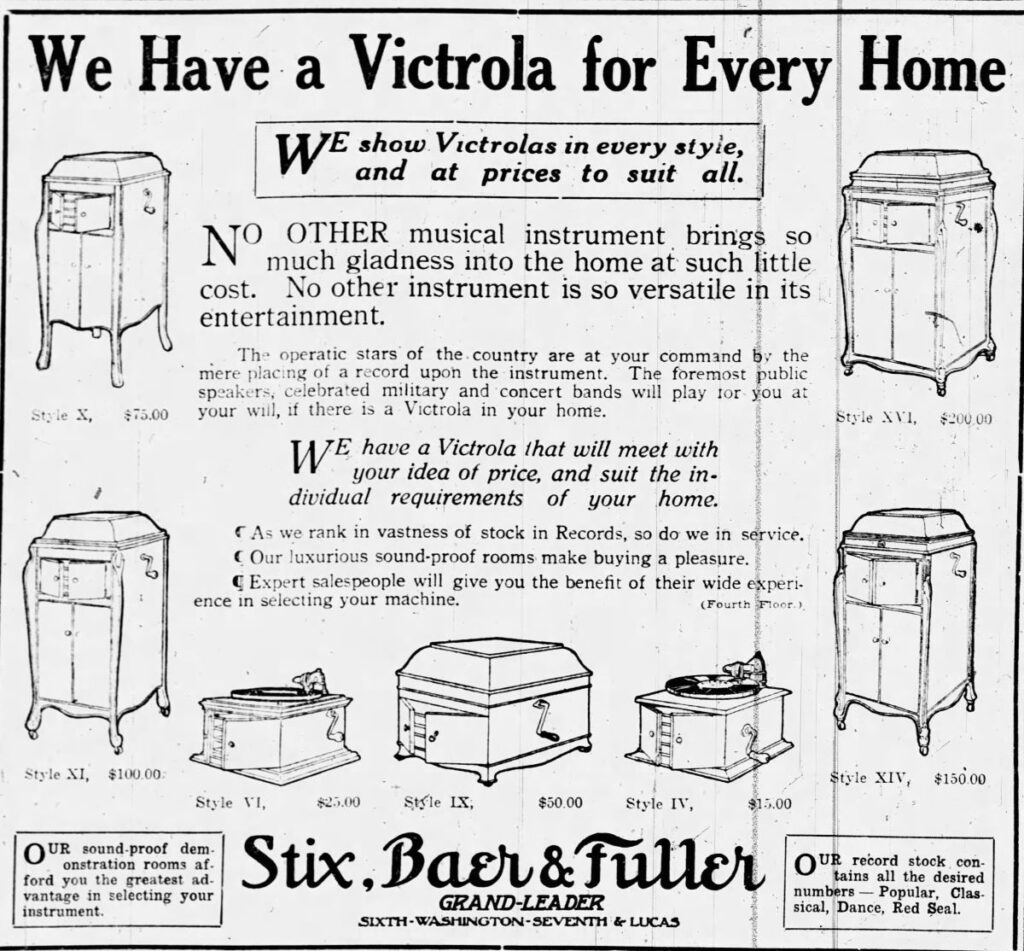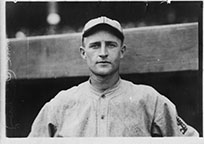After 1st Inning Doak Pitches in Great Style
- Gives up 6 hits, 4 runs (all in the 1st), goes 15 innings
- Gonzales’ Daring Steal of Home Ends One of Great Games Played Here in Years
- Gave up but one walk after the 1st, struck out 10 and had 10 assists. (i.e. he was single-handedly responsible for 20 of the 45 outs.)
- Doak Is Found for Four Runs in the First Inning, but Pitches Remainder of Contest in Sensational Style
- Sheridan: Indeed, setting the first inning aside, it was one of the most remarkable games pitched in St. Louis in many years.
Game Date: 6/11/1917
BY J.B. SHERIDAN.
Overcoming the tremendous initial handicap of four runs in the first inning, battering down the most wonderful defense presented by a baseball team in many years. St. Louis, Doak pitching, defeated Philadelphia, Oeschger pitching, 5 to 4, in fifteen innings, at Cardinal Field yesterday. Gonzales’ brilliant steal of home in the fifteenth inning scored the winning run. The Cuban doubled with one down, took third on Miller’s out and stole home while Cruise was at bat. It was a proper finish to the best game of baseball played in St. Louis this season.
Doak pitched wonderful ball after the first inning. Paskert led the game by singling off the first ball pitched. Bancroft walked. Stock sacrificed. Long muffed Cravath’s fly. Paskert scored. Bancroft went to third. Whitted bunted and Bancroft beat Doak’s assist to Livingstone. Luderus walked. Niehoff popped to Hornsby. Killifer singled to right scoring Cravath and Whitted. Four runs. That was the beginning and end of the Philadelphia run making.
St. Louis got a run in the fourth inning. Hornsby singled. Cruise walked. Oeschger made a wild pitch. Long flied to Cravath. Hornsby scored.
Scored Tied in Sixth.
The Cardinals tied in the sixth. Gonzales had gone when Miller singled. Hornsby singled to left. Cruise hit to Oeschger, forcing Miller at third. Long doubled to right, scoring Hornsby. Niehoff let Livingstone’s little grounder go through him. Cruise and Long scored.
They tied in then. Neither side had much chance to score until the fifteenth. The Cardinals did have two men on with one down in the eight, but Livingstone hit into a double play. Stock was on second with one down in the eighth, but Whitted could not fetch the runner home.
Doak’s game was remarkable. The four runs scored by Philadelphia in the first inning were not Doak’s fault. Paskert should have been caught stealing, but Hornsby failed to cover second in time to take Livingstone’s throw. Long’s muff of Cravath’s fly was flagrant. It seemed from the stand that Doak had struck out Killefer before the latter singled, scoring two runs. Even Paskert’s hit was tainted. J. Smith played it slowly and the wind blew it away from the fielder. Killifer’s hit was not hard driven. Only five men got on base after the first inning. He struck out ten batters and had the wonderful number of ten assists. Indeed, setting the first inning aside, it was one of the most remarkable games pitched in St. Louis in many years.
Cripple as they were by the absence of Snyder, Cruise limping and scarcely able to run, a catcher on first, a first baseman on second, a third baseman at short and off to a four-run disadvantage, the Cardinals played the pluckiest sort of ball. Added to these disadvantages was the greater one of overcoming the best defensive game put up in St Louis in many a day. Time and again wonderful fielding by Bancroft, Whitted, Luderus and Stock turned apparently safe hits into outs.
With Doak striking out ten men and throwing out ten others, thus assisting in making twenty of the forty-five put-outs made by his team and keeping everlastingly at it, the Cardinals won. They kept on hitting Oeschger heartily. Hornsby in six times up made four hits. Long’s muff in the first inning hurt, but the right fielder made two singles and a double and a sacrifice fly in his first four times at bat. Long batted in two runs. His double really was responsible for the three runs scored in the sixth inning. He drove in Hornsby and put Cruise and himself in position to score on Niehoff’s error. In this way Long, to some extent, made up for the four runs made possible by his error in the first inning. Long had quite an afternoon. His muff gave the Phillies four runs. Long’s hitting was largely responsible for four of the five runs scored by St. Louis.
Gonzales’ play in the fifteenth was brilliant. His double was his first hit in a week. He had been hitting so poorly that, after failing to hit in five trials and striking out in his two previous attempts. Huggins directed Gonzales to sacrifice with one out in the twelfth inning. Then came Don Miguel with his never-say-die spirit, his double and his clean steal of the home plate for the winning run.
Livingstone’s catching was remarkable in the way that he kept life in the team. Livingstone did not get a safe hit, but he held up Doak splendidly, threw well to bases, and, with his constant energy and chatter, kept his fellow players on their toes.
The game was remarkable for the number of called strikes. Doak and Oeschger kept putting the ball over the plate all the way. Umpire Byron seemed to favor the pitchers by calling strikes as liberally as possible.
David Bancroft, shortstop of the Phillies, wrenched and severely injured his left arm when he collided with Miller of St. Louis in an attempt to steal second base during the game. Bancroft, rated the most brilliant shortstop in the National league, played a great game up to the time of his injury. His fielding was remarkable. Manager Pat Moran said he feared his arm may be dislocated at the elbow. His absence for any length of time will be a distinct loss to his club, which is a resolute contender for championship honors.
Ad of the Day, June 11, 1917: We Have a Victrola for Every Home

